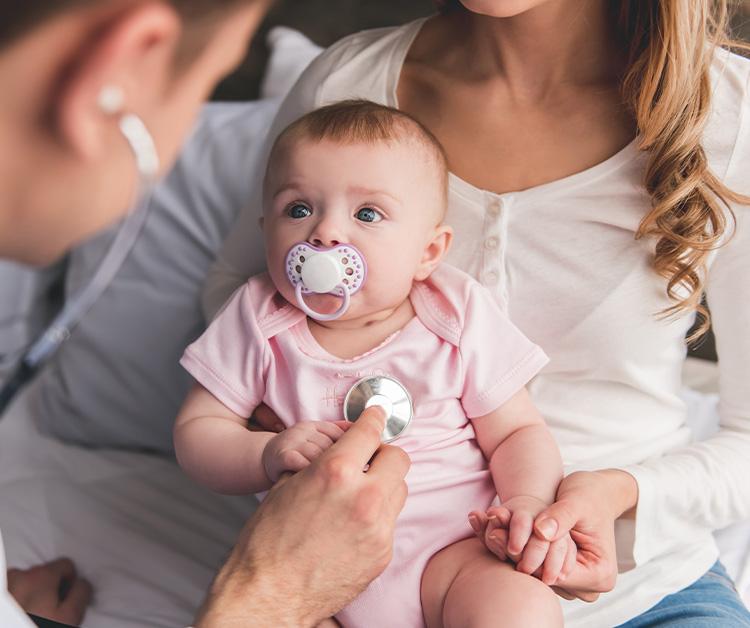Due to maintenance, rewards points for receipt uploads will be delayed. Thank you for your patience!

Your baby's pediatrician is your partner in keeping your baby healthy and on-track in her development. Here are some tips for knowing what to ask and when to call your baby's doctor.
The care your baby receives during these first few months of life will lay the foundation for later childhood health.
The pediatrician will track your baby's progress, based on necessary exams and testing, along with the information you provide. It's helpful to have your questions and concerns ready each time you visit or call the office.
It's important for you to feel comfortable enough to talk with the doctor and medical staff about any issues you and your baby are facing. Be sure to keep your baby's doctor informed of any changes in your baby's health.
When you visit the pediatrician, it's important to:
Most babies get sick at one time or another. It's a good idea to know a few warning signs. Just because your child has one or more of these signs doesn't mean she has a severe illness.
If you see any of these warning signs, let your pediatrician know:
Fever is a sign of infection somewhere in the body. If your baby under three months of age develops a rectal temperature of 100.4°F or higher, call the pediatrician. The best way to measure your baby's fever is to take a rectal temperature. To do so, follow these steps:
Let your baby's doctor know if she has a fever so you can receive instructions on whether you should give her any medicines or take any other steps to reduce the fever.
All information on Enfamil, including but not limited to information about health, medical conditions, and nutrition, is intended for your general knowledge and is not a substitute for a healthcare professional's medical identification, advice, or management for specific medical conditions. You should seek medical care and consult your doctor or pediatrician for any specific health or nutrition issues. Never disregard professional medical advice or delay seeking medical treatment, care, or help because of information you have read on Enfamil.